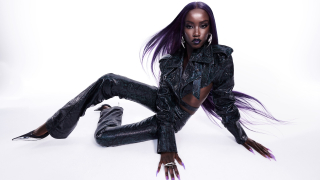Black women across the land are annoyed with The New York Times and the persistent ability of writer Alessandra Stanley to fail another day, thanks to an epically bad attempt at turning an “insidious stereotype” on its head by, well, keeping it alive. While I was certainly disgusted by the lack of respect shown to one of TV’s most important show-runners and her stunning lead actress, I don’t think I was jarred by it in the same way that others were because of a lesson I learned about race, interestingly enough, through the genius of Michael Jackson.
I wasn’t able to fully appreciate “They Don’t Care About Us” when HIStory was released in 1995. It isn’t that I was too young to rock with political music—I grew up listening to Bob Marley, and Public Enemy, and singing Black Panther chants that would “offend my political connects.” But for whatever reason, that singular, important sentiment from the controversial classic didn’t really click for me until I was an adult.
They don’t care about us.
The old saying goes that it isn’t hate that is the opposite of love, but rather, indifference. I don’t know that I always believe this to be true. In fact, most times hate and indifference grown by racism are woven together into a seamless, terrible tapestry that smothers my people, renders our cries silent and our needs, invisible.
So when Stanley’s dreadful Shonda Rhimes/How to Get Away With Murder piece is allowed to run in a space like The New York Times—not two months after the backlash from the Mike Brown “no angel” controversy that would have made many editors say, “We probably need to be very delicate around this whole Black people thing, because Twitter (?)”—I’m not inclined to agree with those who think this is an incident of deliberate trolling. Many of my brilliant sisters of the pen believe that the NYT has come to realize that Black Outrage (especially Black Girl Outrage) leads to clicks-on-clicks-on-clicks, which it often does. But I’m not willing to give Stanley, nor her editors, credit for being that savvy here, for I have stepped into the truth Michael tried to tell us in ’95:
They don’t CARE about us.
Suggesting that Rhimes’ autobiography would have “Angry Black Woman” in the title, when nothing about her work, industry reputation or the Black female characters on her shows (because we must assume that every single Black woman in Shondaland, from Bailey to Pope, is based on herself) smacks of that trope at all, is callous, stupid and criminally uninformed. And it’s easy to associate callous, stupid and uniformed with blatant anti-Black racism—a fact that leaves women like Stanley shaking and shouting about not having a racist bone in their bodies, and having Black au pairs or secretaries or whatever-Black-you-need-in-your-life to prove that you are a good, kindly White person.
I truly believe that I have cracked the code as it relates to this whole White, pardon, “mainstream” media thing and believe me when I say this: they aren’t thinking about us because THEY DON’T CARE ABOUT US. Stanley didn’t go out of her way to offend you, because she doesn’t know you exist. To folks like her, you are but a mere abstraction, an idea—not an actual person. Black thoughts, feelings and lives are of no importance to these writers and editors. Rhimes and her angry Black shows are popular enough that they can’t be denied, which is why they make it to the pages of The Times in the first place. But they are enjoyed by the likes of Stanley through a lens of lofty Whiteness that does not necessarily get what many of us would hope to be the takeaway from an Olivia Pope or Harrison Wright: that Black people are nuanced, complicated and shouldn’t be reduced to the stereotypes through which we are often misunderstood.
Understand this: The New York Times didn’t want to hurt you, Black people. The same goes for DKNY’s hijacking of baby hair and Vogue’s declaration of “the booty era” coming vis á vis Jennifer Lopez, Iggy Azaelia and other non-Black women. They didn’t consult you on your thoughts on seeing your childhood hairstyle remixed terribly for NYFW because they don’t care. They didn’t examine the rejection of Black booty pre-Lopez because they don’t care. In fact, the ‘don’t care’ is so deep that your reaction to these articles and disses and appropriations was never a consideration to begin with (which is why Jon Caramanica is charged with writing Being Mary Jane reviews, why Stanley is tasked with a daunting trip to Shondaland, why zero of The Times’ 20 culture critics are Black.) It did not occur to the editors involved with the Rhimes piece that you people might be mad about it because your Black thoughts are about as distant from their own as the moon Mars. Your Black feelings are somewhere with Jimmy Hoffa and Detox demos, never to be seen or heard. You might as well not exist in these people’s worlds unless you are giving them something they can celebrate and appreciate independent of the hands that shaped it.
That doesn’t mean that we shouldn’t write letters, or create hashtags or withdraw our support in response to these indignities. That’s hardly my message, as there are absolutely people both inside and outside of the community who benefit from the lessons that are taught publicly in moments like this. But please, Black people, do understand that the eyes and ears that can truly understand the frustration at Stanley’s “angry Black woman” bit are limited because they cannot recognize us to begin with. Why?
They don’t care about us.













